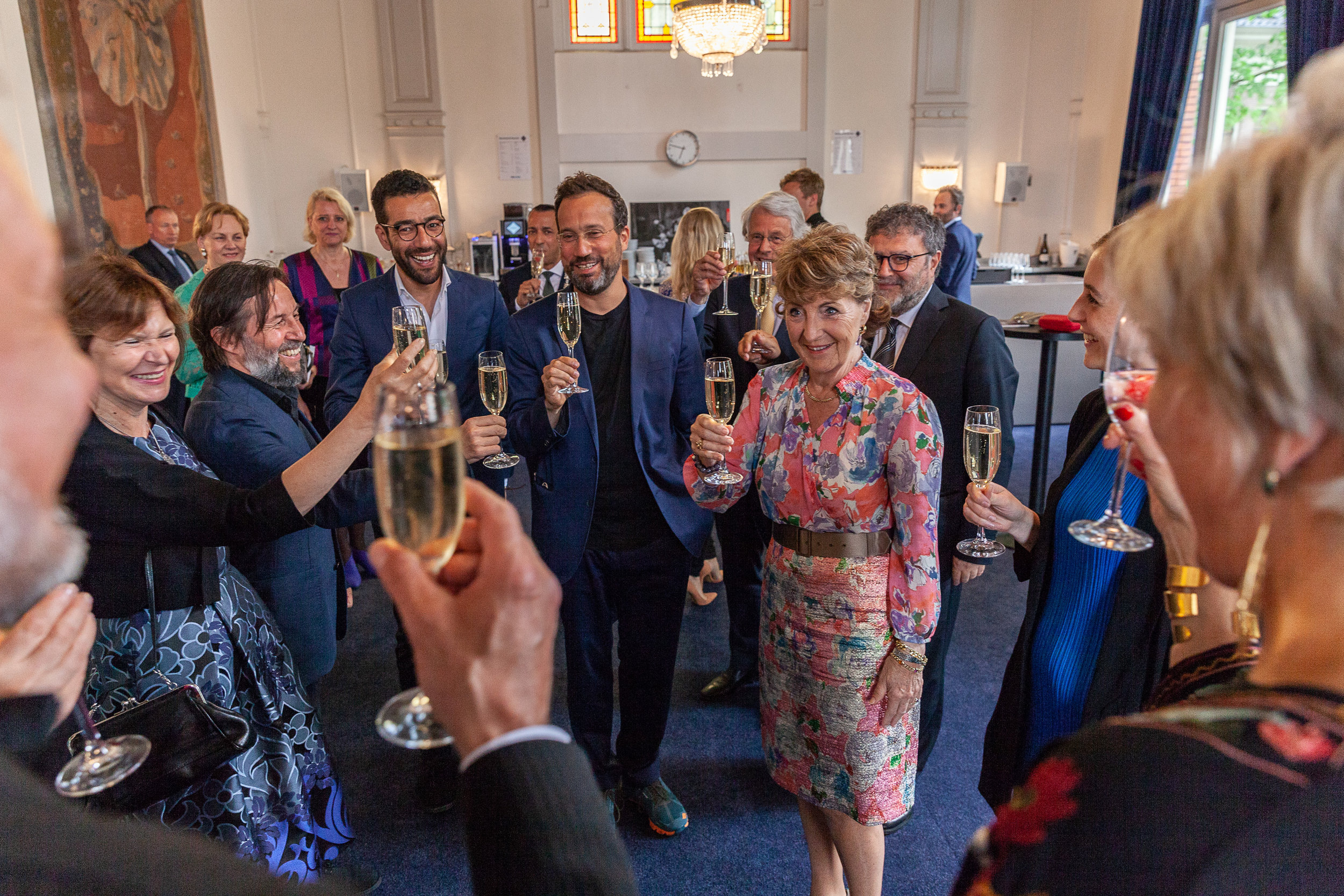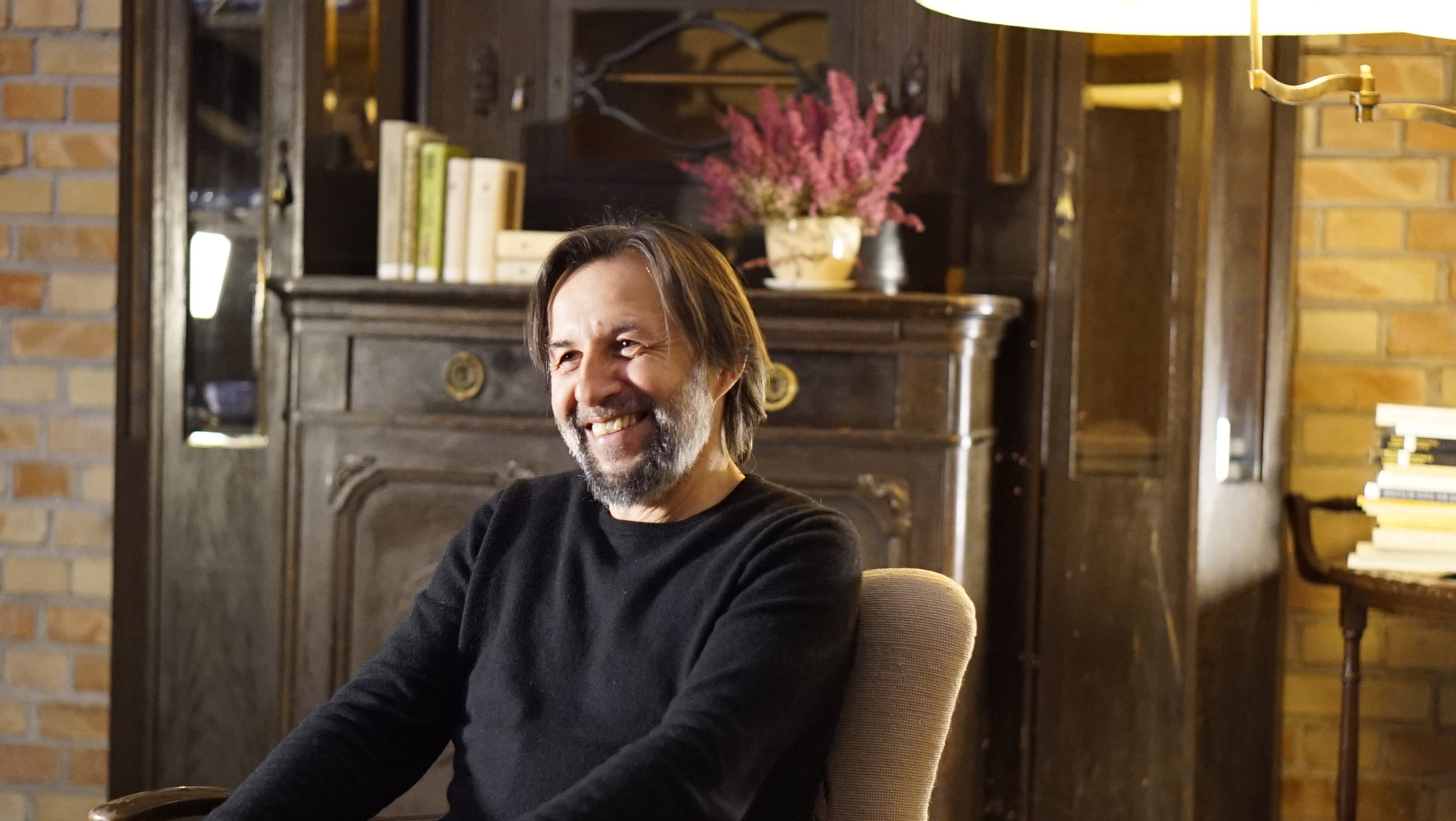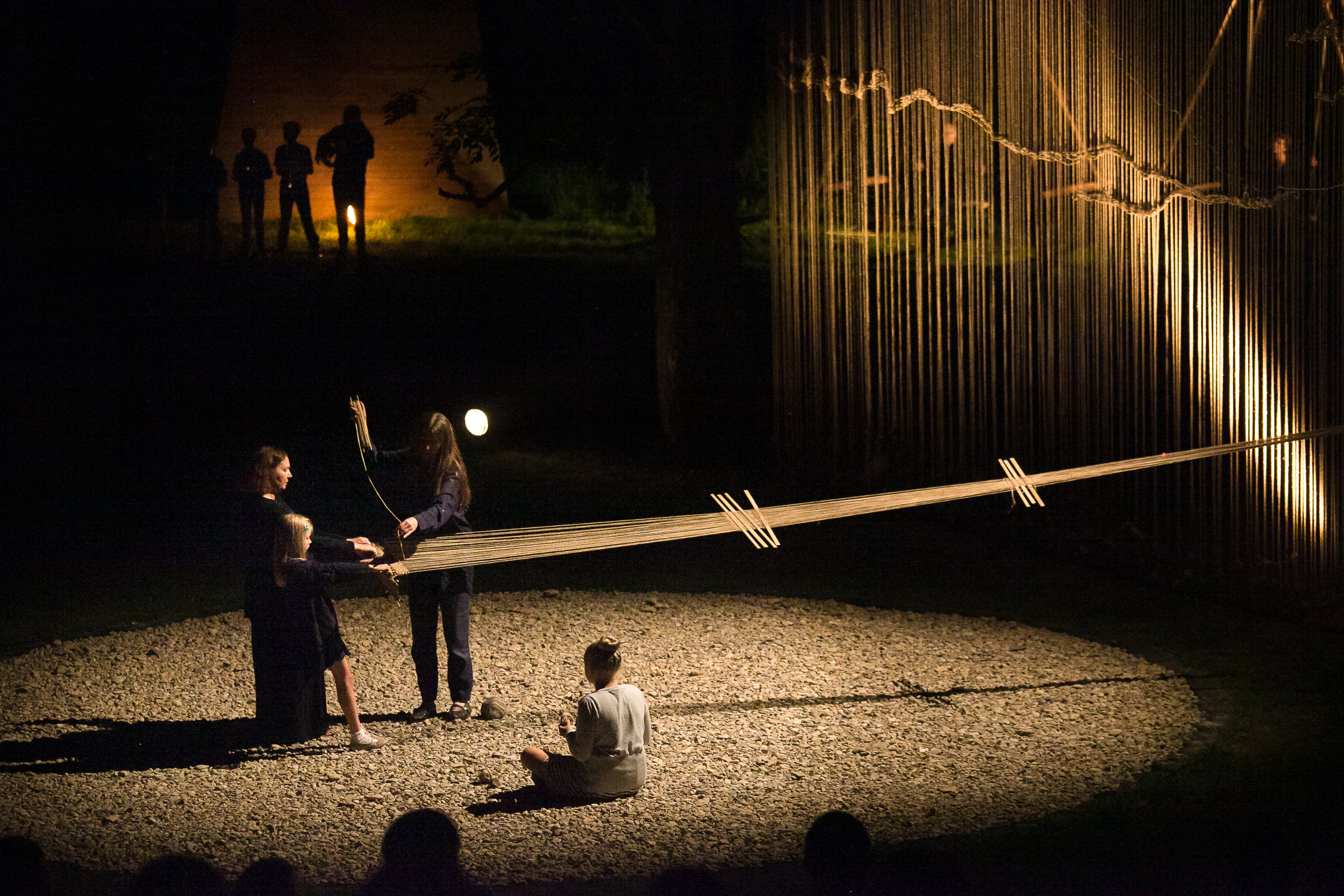“The Athens Biennale is a source of hope for biennales as an institution internationally.”
The European Cultural Foundation’s director visited Athens and she talked to Athinorama about the organisation’s decision to award the Athens Biennale, as well as about new directions in cultural management.
By Despina Zefkili | 8 December 2014, originally published in Greek on Athinorama's website.
What is the European Cultural Foundation?
This year the European Cultural Foundation is celebrating its 60th anniversary. ECF is rooted in Europe’s post-war rebuilding and healing process. It was founded in 1954 by the Swiss philosopher Denis de Rougemont, who believed that culture could become a source of inspiration for Europe’s future. He also believed in what one of the architects of the European Community, the French statesman Robert Schuman, had said: “Europe needs a soul”. In 1960 ECF moved to the Netherlands where it is still based. Seventy five per cent of its funding is sourced by the national lottery system.
What is the foundation’s mission?
We still believe that culture is a vital ingredient of an open, democratic society. We are interested in finding channels through which culture can offer solutions to society. Europe is for us an extended community reaching from Caucasus to the southeast Mediterranean. We offer grants for research and development of new ideas, we create networks connecting Europe with its neighbours, and in 2008 we established the Princess Margriet Award in honour of the organisation’s former President Princess Margriet of the Netherlands, which includes a sum of 50,000 Euros and is awarded annually to two organisations or individuals. The laureates are change-makers in the realms of culture and society.
What is the selection process for the award?
Each year a different group of 35 nominators (announced on our website) is invited by ECF to make proposals. This network of nominators are experts in different disciplines and areas of cultural practice across Europe (from museum curators and collectors to activists and thinkers). An equally diverse jury (performance theorist Bojana Cvejić, and Chris Dercon, Director of Tate Modern, were two of five of them this year) chooses the laureates. Past laureates include Rimini Protokoll founder Stefan Kaegi, cultural theorist Stuart Hall, curator Charles Esche and choreographers Jerome Bel and Pichet Klunchun.
Can you tell us the reasoning for awarding the Athens Biennale this year?
The Athens Biennale was awarded because it managed to re-imagine the model of the biennale. It re-imagined itself attracting many visitors. Nowadays we tend to believe that art biennales around the world are institutions with a commercial profile. The Athens Biennale’s achievement was to reinvent the essence of the institution, thus making us believe in a dynamic future for biennales in general. This can possibly happen only under circumstances such as the ones you are facing here. A different kind of intervention, sharing quite a lot of common
characteristics though, is the one made by our second laureate, the Visual Culture Research Center in Kiev, a group of young academics, artists and thinkers who remain active despite the political situation in their country. I hope that they manage to become part of the solution. Europe is pestered by political, financial and social wars and I believe that culture can make the difference. We single out institutions eager for commitment and action, having the power to cause change. Therefore it is not very important to engage in a conversation on whether the Athens Biennale is an institution or not, a topic that seemed to be quite popular during the symposium. Rather we should discuss how this organisation managed to question the very structure of the biennale, a fact that might prove important not only for itself, but for every biennale worldwide. When I arrived at the symposium I did not know what to expect. What I saw was approximately 300 persons eager to participate.
It looks like you focus on projects with a socio-political aspect.
I don’t like separating the artistic spheres from society. I believe that participation and collectivity can help towards a solution of broader issues. We recently offered a grant for the development of an idea concerning the re- claiming of public space. After an open call we gathered 50 of those who responded, and organized a four-day idea camp for the exchange of ideas. Only half of the participants define themselves as cultural producers and the ideas produced included a creative recycling system in Palestine by a designer and a proposal for wi-fi in secluded villages. We support proposals with perspective, with the potential to evolve through time.
In what ways do budget cuts affect cultural production?
Public funding for the arts is shrinking all over Europe and we become more and more concerned about how the reduced budgets should be distributed. In my opinion, the state should clarify its priorities concerning the distribution of funds. Medium-impact initiatives are usually the ones to be affected the most – after rejecting the pressure to become institutionalized, they reach a dead end – whereas the large-scale cultural players can leverage money from other sources and the small ones are used to working without public financial support anyway. What strikes me as more exciting though is that, against all odds, new groundbreaking initiatives are flourishing, ventures that don’t necessarily define themselves as cultural organisations. Instead they attempt to bridge the arts with education, society and politics. What we seek to do at ECF is detect which of these initiatives will have a long-lasting commitment. We also seek to create networks and the necessary background to help them realise their ideas. We are not interested in offering yet another award to the ones that have already been awarded, but to single out the ones that seem to find solutions for the future, those who stand in the heart of things as activists, even with a small a.
The ECF Princess Margriet Award for Culture will be presented on 31 March at BOZAR Centre for Fine Arts, Brussels.





























